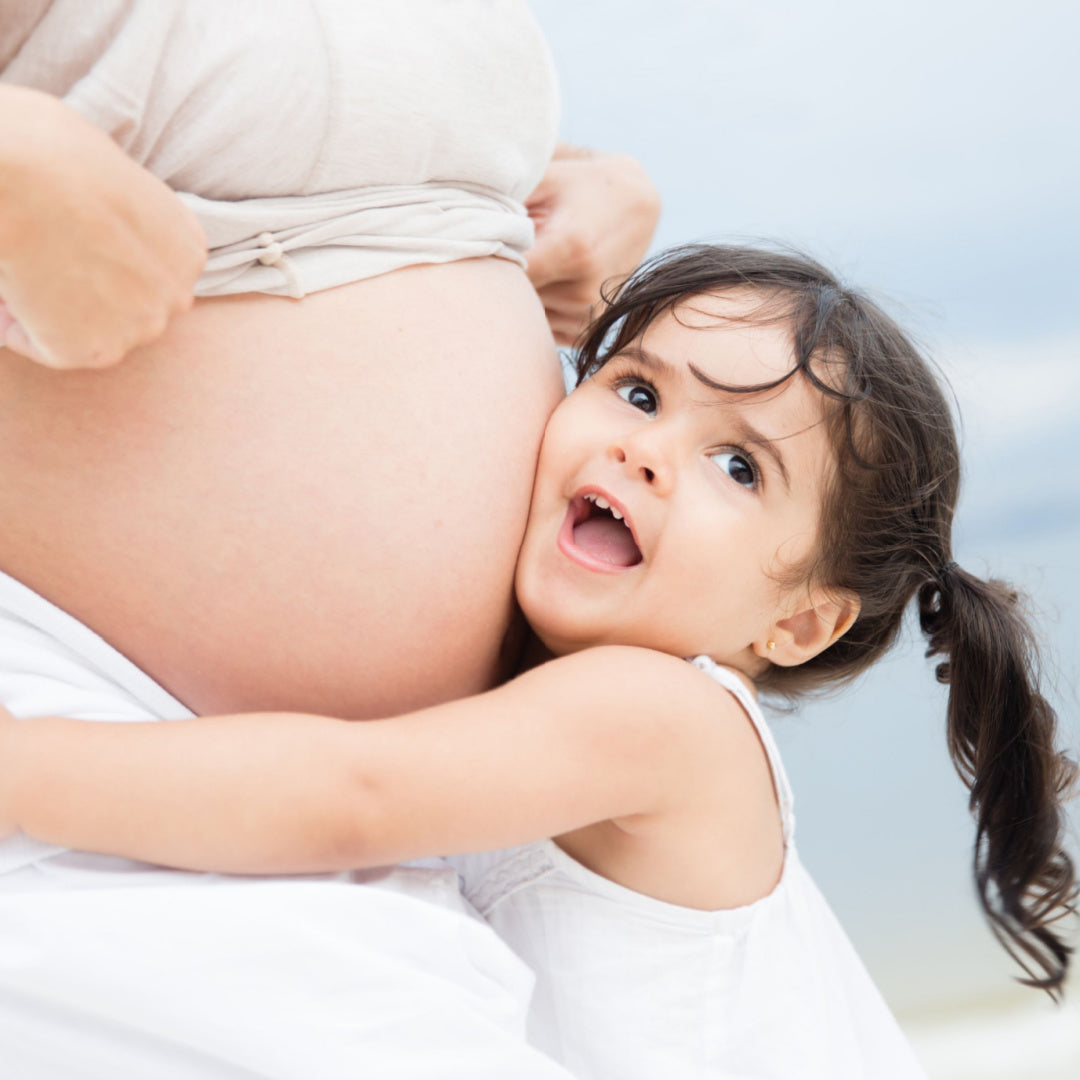It can be hard to feel fully prepared for when a new baby is coming into the household and there are generally some elements of surprise. Practical considerations are often easier to manage than what’s in store emotionally.
It’s normal for parents to feel a mixture of excitement, nervousness, apprehension and even guilt when a new baby is coming. And to wonder how it’s possible to love another child as much as the other one, or two, or more. Most parents find it very easy to fall in love and build attachment with their new baby. But it’s worth remembering that this is not always immediate and can take some time. Try not to compare your feelings towards your older child with how you feel about the younger one. Just be patient and kind with yourself as you learn to get to know each other.
When can I tell them?
It can help to start preparing older children for a new sibling as early as their age allows them to understand. Very young children have a simple understanding of time and cannot comprehend the concept of weeks or months. This is why it can help to wait to tell them closer to the new baby’s due date.
Older children can benefit from knowing early on, especially if pregnancy symptoms are causing their mother to be less energetic than usual. Either way, when and how you tell your children is up to you and your partner.
If the pregnancy was planned and you’re excited, your need to share the news may be different to someone who was not planning another baby. You may have even involved your older child in conversations about when another baby comes along. They may need some time themselves accepting that another baby is coming into the family.
Ways to tell the older child
You could simply pick a time and tell them they are going to be a big brother or sister then talk with them about what this means. Try to be positive in your communication so they learn this is a good and exciting thing which is happening. Even if they don’t fully understand, the way you talk about the new baby and how exciting this is will rub off on your older child.
Helping you to care for the new baby, showing them photos of when they were small and talking about when they were born are some ideas. You could also talk about other families with a new baby and visit them so your child can see, hear and perhaps touch a young baby.
Don’t be disappointed or worried if they don’t seem too happy about being around a baby. For some children it takes longer and it’s not until they have a lived experience their own baby that they learn what it means.
Ten ways to help older children prepare for the new baby
The most important factor will be your attitude and the feelings you communicate about the new little person coming into your family. Children learn how to respond to changes from parental role modelling. However, these tips will also help:
- Let your older child help you prepare the baby’s nursery and involve them in making decisions about what needs to be bought.
- Show them your tummy and see if they want to put their hand on your belly when the baby is moving.
- Take them to ante-natal appointments where they can hear the baby’s heart beating and perhaps see the baby on the ultrasound screen.
- Talk with your child about what a big helper they can be in helping you look after the baby.
- Talk about name choices and see if they have any ideas.
- Plan for when the baby is born and you may be in hospital. You may want to buy a special toy for your child as a gift from the baby when they come to visit.
- Try not to make the pregnancy the sole topic of most conversations when your older child is in earshot. This can sometimes lead to feelings of not being as important, especially for children who have more comprehension.
- Read stories about babies and talk about how your family is growing.
- Tell your child how special they are and how much you will still love them. At the heart of anxiety is often feelings of being uncertain about the future and how we will cope. Reassurance and kindness help children to feel safe and secure.
- Talk with your child about who will care for them while you’re having the new baby. Try to keep their routine as much the same as possible and arrange caregivers they know and feel comfortable with.
Where did that come from?
It may help to expect your older child to regress a little in their behaviours when you bring a new baby home. Toilet training, sleep and eating often change when there is household disruption and everyone needs to shuffle a little to find their new position. Try to focus on the things which really matter and ignore what doesn’t. And try not to view your older child’s behaviour as anything other than temporary. With time, patience and consistency, they will get used to the new arrangements.
Written for GAIA by Jane Barry, Midwife and Child Health Nurse, February 2024.



